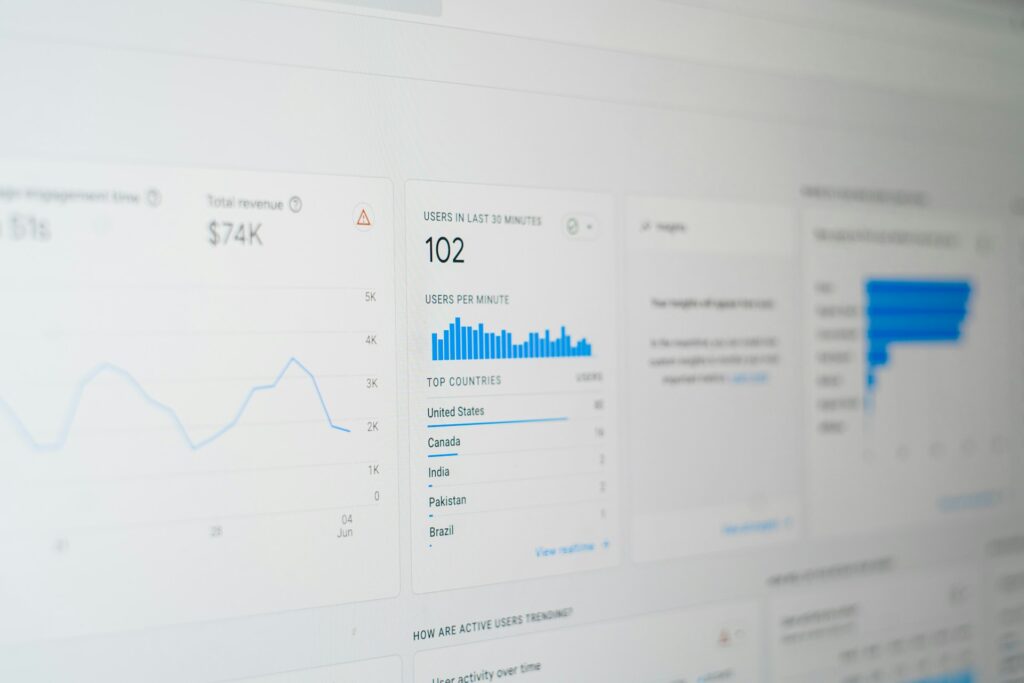Ever dreamt of your blog becoming a haven for enthusiastic readers, a hub of knowledge that attracts just the right audience? Well, that dream can become a reality with the magic touch of SEO (Search Engine Optimization).
Think of SEO as the secret code that whispers to search engines like Google, “Hey, this blog is awesome! People should totally see it!” By incorporating these SEO tips for small bloggers, you’ll be well on your way to ranking higher in search results and welcoming a swarm of curious minds.
Read Also: Conquer SEO on a Budget: Top Free SEO Reporting Tools for 2024
1. Keyword Magic: Unlocks the Search Queries
Imagine yourself lost in a library – a valuable collection of information, but with no clue where to find that perfect book. Keywords are like those handy library labels, guiding readers (and search engines) to your content.
The first step? Unearthing those golden keywords. Brainstorm topics relevant to your niche and go into what your ideal audience might be searching for. Tools like Google Keyword Planner or answerthepublic.com are fantastic companions on this quest. Don’t be afraid to target long-tail keywords (more specific phrases) – they might hold less competition and even more engaged readers.
Pro Tip: Sprinkle your chosen keyword throughout your blog post, naturally, not like confetti at a party. But remember, keyword stuffing is a big no-no! Focus on creating valuable content, and the keywords will seamlessly blend in.

2. Use Compelling Titles: The First Impression Matters
Think of your blog title as the catchy headline that draws you into a magazine. It should be informative, intriguing, and entice readers to click.
For example, instead of a bland “5 Baking Tips,” try something like “From Soggy Bottoms to Bakery Bliss: 5 Essential Baking Hacks for Beginners!” See the difference? The second title is more descriptive, promises valuable information, and sparks curiosity.
3. Structure: Formatting for Readability
Have you ever encountered a wall of text? It’s enough to make anyone click away. Break up your content with subheadings, bullet points, and short paragraphs. This makes your blog easy to scan and visually appealing.
4. Meta Description: The Sneaky Search Engine Pitch
The meta description is a short blurb displayed under your blog title in search results. It’s your chance to convince search engines (and readers) that your content is the answer to their prayers.
Keep it concise, informative, and include your target keyword. Think of it as a movie trailer – it should pique interest without revealing the entire plot.
5. Internal Linking: Building Bridges Within Your Blog
Imagine a museum with well-placed signs, guiding visitors from one exhibit to another. Internal linking works similarly. Link relevant past blog posts within your current content. This keeps readers engaged, navigating them through your blog’s treasure trove of information, and helps search engines understand the structure of your site.
Read Also: Conquer SEO on a Budget: Top Free SEO Reporting Tools for 2024
6. The Use of Images: Use Alt Text for SEO and Accessibility
Search engines can’t “see” your images, but you can introduce them with captivating alt text (alternative text). This text describes the image and should include relevant keywords. It also plays a crucial role in website accessibility, providing information for screen readers used by visually impaired visitors.
On image placement: Consider using captivating images throughout your blog to illustrate your points and add visual interest. E.g. screenshots, tells readers that yes, you’ve had a first-hand experience on what you’re saying.
7. Building Backlinks
Backlinks are like votes of confidence in the blogging world. When other websites link back to yours, it tells search engines that your content is valuable.
Guest blogging on relevant websites is a fantastic way to score backlinks. You can also participate in online communities and forums, offering your expertise and subtly linking back to your blog posts when relevant.
8. Become a Content Crusader: Consistency is Key
Building a loyal readership takes time and dedication. Develop a consistent posting schedule and stick to it. This not only keeps your audience engaged but also signals to search engines that your blog is active and up-to-date.
9. Analytics: Understanding Your Readers
SEO is a journey, and analytics tools are your map. Explore website analytics to see what’s working and what’s not. Which keywords are driving traffic? What content resonates most with your audience? Use this data to refine your strategy and keep your blog growing.
10. Embrace the SEO Journey: It’s a Marathon, Not a Sprint
Don’t get discouraged if you don’t see results overnight. SEO is an ongoing process. Stay patient, keep creating high-quality content, and implement these SEO tips for small businesses consistently. Remember, the more valuable and informative your content is, the more likely it is to attract readers and backlinks naturally.
Bonus Tip: Social Media – Your SEO Ally

Social media platforms are buzzing with potential readers. Share your blog posts on relevant social media channels to increase visibility and engagement. This can spark discussions, attract new visitors to your blog, and even earn you valuable backlinks if others share your content.
Use AI tool like blogseo Its an AI writer designed specifically for content generation.
Conclusion
By incorporating these SEO tips for small businesses, you’ll be well on your way to transforming your blog into a thriving online destination.
Remember, SEO is an ongoing exploration, but with dedication and these handy pointers, you’ll be well on your way to ranking higher in search results and attracting a swarm of curious readers eager to delve into your content. So, bring out your inner content creator, embrace the SEO journey, and watch your blog blossom!
Read Also: Conquer SEO on a Budget: Top Free SEO Reporting Tools for 2024
Free vs. Paid: Choosing the Right Best SEO Reporting Tool for Your Budget (1)

